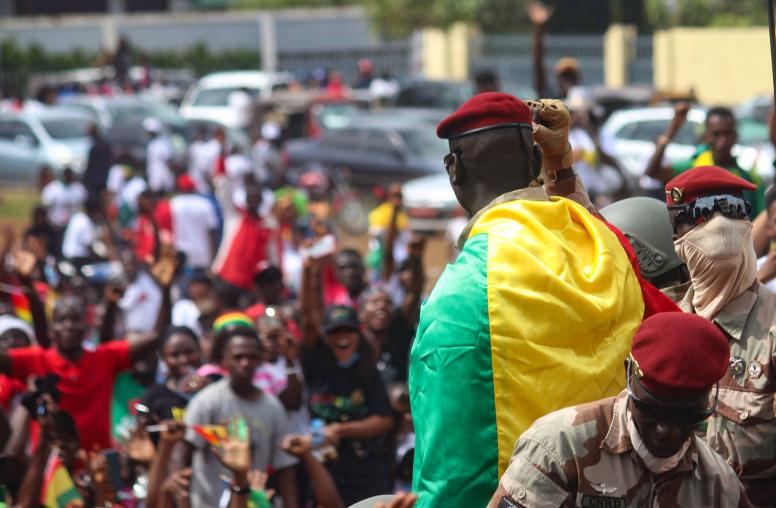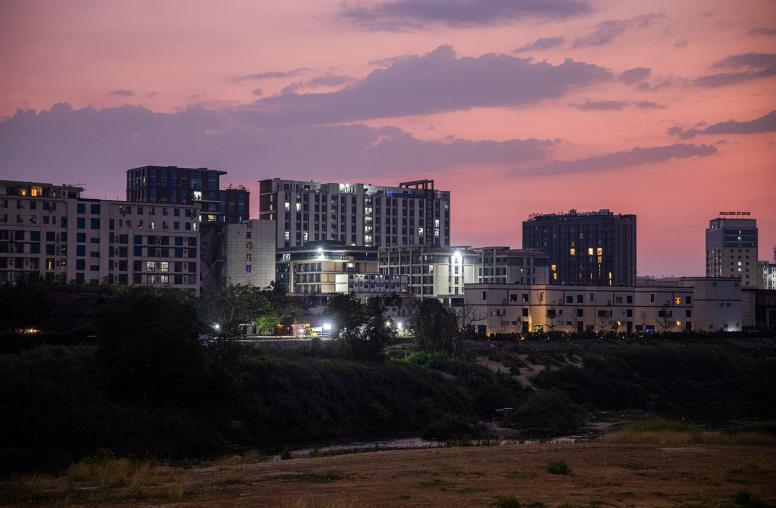Is Coronavirus Making Southeast Asia More Authoritarian?
As U.S.-China competition in the region heats up, the pandemic has brought questions over governance models to the fore.
Southeast Asia has emerged as the regional fulcrum of strategic competition between the United States and China in the Indo-Pacific, with both the Washington and Beijing aggressively competing for influence in the 10 countries that comprise the Association of Southeast Asian Nations. This attention is well-placed, as the decisions that these countries make shape power dynamics in the broader region, influence global norms from internet governance to minority rights, and are determining along which lines the world’s most dynamic regional economy integrates.

Southeast Asia is also a bellwether for governance, an area in which the United States and China also compete for influence, each holding up their own model as the path to peace and prosperity. From a U.S. perspective, Southeast Asia has been trending negatively on this front over the past decade after riding a wave of liberalization in the 1990s and 2000s. In Cambodia, the government has largely dismantled all political opposition and a once-robust civil society. Thailand has reverted to a cycle of coups and military-dominated governments. In the Philippines and Indonesia, despite free and fair elections, freedom of expression is receding quickly, judiciaries are under attack, and their democratic futures are increasingly in doubt. In Myanmar and Malaysia, two countries that have at times made strides in recent years, progress has all but stalled.
COVID-19’s Impact
Unfortunately, COVID-19 appears to be nudging the dial in Southeast Asia toward authoritarianism for at least three reasons:
- First, several of the region’s authoritarian-leaning leaders have leveraged the crisis to assume additional powers and attack political enemies.
- Second, there is a perception that authoritarian regimes in Southeast Asia have better managed the pandemic than the region’s democracies, a narrative buoyed by China’s diplomatic efforts to propagate its own accomplishments despite even greater success stories in South Korea and Taiwan.
- Third, security forces in some countries have used the crisis to increase their role in society.
The most immediate way in which the pandemic has affected governance in Southeast Asia has been through the actions of leaders who nominally preside over democratic systems but have used the crisis to gain additional powers and attack political enemies. Predictably, the most extensive power grabs have been in the three countries that have trended most negatively in recent years, Cambodia, the Philippines, and Thailand. In Cambodia, Prime Minister Hun Sen’s government exploited COVID-19 to use “fake news” laws to jail political opponents and those criticizing the government’s response. In the Philippines, President Rodrigo Duterte has granted himself “special temporary power,” jailed political opponents, and many suspect he is laying groundwork for declaring martial law. In Thailand, Prime Minister Prayuth Chan-o-cha, who led a military coup while still in uniform in 2014, is using the cover of COVID-19 to repress freedom of expression using arbitrary legal mechanisms.
There has also been a perception in the region that illiberal politics have been an ingredient for success. In terms of managing the pandemic in Southeast Asia, clearly the most effective early national responses came from Vietnam and Singapore. While their approaches differed dramatically in terms of cost and technology, both acted quickly and effectively mobilized their societies to counter the threat (with Singapore making significant mistakes related to its segregated migrant worker population, which account for the vast majority of its high caseload) and have suffered minimal loss of life. Despite being extremely different in terms of size and economic development, their one-party governments and their citizens’ lack of civil liberties clearly helped enable quick responses.
Meanwhile, Southeast Asia’s two large democracies, Indonesia and the Philippines, have performed worst, with delayed, chaotic responses, partly a result of their leaders’ fears that an abrupt economic downturn caused by lockdowns would lead to political instability due to their governments’ inability to deliver services.
China’s relative success in managing the pandemic following its early lapses and the United States’ failures have also not been lost on Southeast Asians, a narrative that has been aggressively propagated by Chinese diplomats. However, the picture becomes far more complex when one looks at the successes of the major Northeast Asian democracies, South Korea, Japan, and Taiwan, which are all beginning to provide support to Southeast Asian partners as they continue to confront the crisis.
The region’s response has also had troubling implications for civil-military relations, with security forces across the region being at the center of national responses. In Indonesia and the Philippines, national COVID-19 task forces are dominated by current and retired military officers. In Myanmar, the military has used the opportunity to assert itself in national affairs, launched an offensive against the Arakan Army, and violated its own COVID-19 cease-fire in Northern Shan State. In Malaysia, one of the region’s least-politicized security forces has played a publicly prominent role in enforcing the country’s “movement control order.” However, in Thailand, it is notable that its military-dominated regime has put public health professionals at the center of their response.
Cloudy implications
The full implications of COVID-19 on governance in Southeast Asia remain cloudy, despite the pandemic appearing to nudge the region toward a more authoritarian future.
While it might appear that Vietnam and Singapore have managed the pandemic best, perhaps as notable are the successes in Thailand and Malaysia, where strong public health systems and public institutions backstopped unsteady political leadership. While leaders in these countries did not initially confront the pandemic with the force and speed of Singapore or Vietnam, the two countries ultimately succeeded due to their public health preparedness and the strength of their institutions. Elsewhere in Asia, South Korea and Taiwan are powerful examples of democratic countries that have been able to mobilize their societies to ably confront the crisis. And it should be noted that the most militarized responses to the pandemic in Southeast Asia have been the least successful, notably in Indonesia and the Philippines.
As the dust settles, there is no question that COVID-19 will have had negative impacts for governance in Southeast Asia, particularly in the Philippines, Cambodia, and Thailand, where authoritarian-minded leaders have already been hard at work dismantling democratic systems for years. However, it would be a mistake to surmise that illiberal politics have enabled countries to successfully counter the pandemic, as the examples of Vietnam, Singapore, and China have led many to conclude. Instead, it is important to highlight the examples of successful Asian democracies like South Korea and Taiwan in managing the pandemic and to shine light on the importance of building strong, resilient institutions and having leaders with the political will to allow professionals to guide responses to complex challenges, ingredients that have also been keys to success in Thailand and Malaysia. On this front, the United States has played an important role in building public health and institutional capacity in Southeast Asia for decades and, once the dust settles, should continue this important work to help the region prepare for the next crisis.



